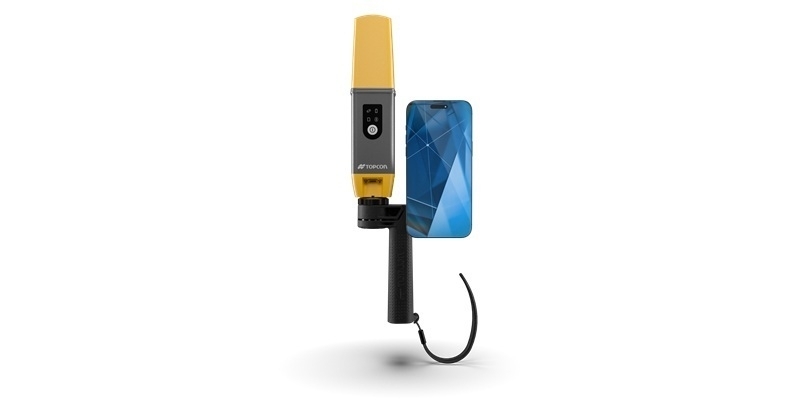OLATHE, Kan. /November 22, 2017/Business Wire — Garmin International, Inc. a unit of Garmin Ltd. (NASDAQ: GRMN), today celebrated the delivery of the one-millionth certified avionics product from its manufacturing facility in Olathe, Kansas. The milestone product was a GTX™ 3000 DO-260B compliant Mode S Extended Squitter (ES) transponder, which enables ADS-B Out transmissions and features TCAS II/ACAS II compatibility for a wide range of business and transport category aircraft.
“Since our inception over 28 years ago, Garmin has been committed to providing superior products that are known for their innovation, reliability and intuitive design,” said Phil Straub, Garmin executive vice president, managing director of aviation. “This milestone is a testament to our long-established commitment to making significant investments in research and development, as well as the hard work and dedication of thousands of passionate Garmin team members that I have the pleasure of working with every day.”
“As we celebrate this exciting accomplishment, I am very proud of how our teams have managed such significant growth while maintaining the culture of our company as our founders set forth,” said Carl Wolf, vice president of aviation marketing and sales. “The breadth and depth of our certified aviation product line has expanded greatly over the years, allowing us to develop new markets for Garmin. This incredible milestone doesn’t even include the hundreds of thousands of portable and other non-certified products that our customers use every day. On behalf of Garmin, I wish to express my utmost gratitude to our loyal customers, our dealers and the aircraft manufacturers all around the globe who have helped us to accomplish such a tremendous achievement in Garmin’s history.”
In conjunction with innovative advancements made in general aviation, Garmin continues to broaden its pioneering vision into the Part 25 business and transport aircraft market. Garmin boasts a number of retrofit installation approvals in a variety of aircraft that span from the King Air series to the Beechjet 400A/Hawker 400XP. Forward-fit products such as the milestone GTX 3000 provide operators with a transponder-based product that is flexible enough to interface with the G5000 integrated flight deck on the Citation Longitude or provide a path to continued ADS-B compliance for legacy aircraft such as an ATR 42/72, a DC-9 or Falcon 900.
Established by co-founders Gary Burrell and Dr. Min Kao in 1989 in Lenexa, Kansas, Garmin was founded with its core roots in aviation. Today, Garmin has grown to comprise of five business segments and over 11,000 employees around the globe. From a single product, the evolution of Garmin avionics solutions has grown to serve multiple segments within the aviation industry, including general aviation, business aviation, helicopter, experimental amateur-built (EAB), defense and air transport.
The success of the aviation business segment within Garmin has been built through numerous achievements over the last 28 years including:
- The GPS 100 AVD, a navigator dedicated for visual flight, which was described as, “one of the most intuitively designed new avionic products to reach the general market in years,” by Fred George in the 1991 December issue of Flying Magazine. The GPS 100 AVD laid the ground work for future milestones and set the standard for product development at Garmin.
- In 1994, the GPS 155 TSO was the world’s first GPS navigation product to be fully certified (FAA TSO-C129, Class A1 standards) for non-precision instrument approach use. For the first time, pilots could fly in instrument meteorological conditions (IMC) throughout the departure, enroute and approach phases of flight utilizing GPS as their primary source of navigation.
- Four years later in 1998, Garmin introduced another first: an integrated GPS, COM, VOR, LOC and glideslope product complete with a color moving-map, the GNS® 430. When the GNS 430 and GNS 530 received Wide Area Augmentation System (WAAS) certification in 2006, the popular IFR certified GPS gave pilots even greater instrument approach capabilities. Today, over 125,000 GNS navigators are installed in a variety of aircraft throughout the world.
- As part of the vision since Garmin’s inception, the G1000® integrated flight deck was introduced in 2003 when Cessna announced the selection of G1000 on the Citation Mustang. Since its introduction, G1000 has brought many safety-enhancing benefits to the general aviation market, including synthetic vision technology (SVT™), automatic flight control integration, Class A/B and helicopter Terrain Awareness and Warning System (TAWS), WAAS, geo-referenced charts, Electronic Stability Protection (ESP) and more. Over the years, the G2000®, G3000® and G5000®, as well as the G1000H® and G5000H joined the Garmin integrated flight deck family. Growing the suite even further earlier this year, Garmin introduced the successor to the admired G1000, the G1000 NXi. Today, over 16,500 Garmin integrated flight deck systems are flying worldwide, which have been certified in 70 aircraft models ranging from single-engine and multi-engine piston aircraft, turboprops, rotorcraft and business jet aircraft from 20 different aircraft manufacturers.
- The successor to the ever-popular GNS 430W/530W came to market in 2011, when the first touchscreen avionics certified for general aviation aircraft were announced at the Aircraft Electronics Association (AEA) National Convention – the GTN™ 650 and GTN 750. Today, these navigators continue to bring a host of additional capabilities, including touchscreen graphical flight plan editing, wireless database loading and flight plan transfer, high-resolution mapping, advanced traffic and weather benefits, including Automatic Dependent Surveillance-Broadcast (ADS-B) overlay and more. Most recently, the touchscreen evolution has grown to include the new G500 TXi, G600 TXi, G700 TXi and engine information system (EIS) TXi flight displays.
- Garmin has also helped pioneer the development and initial deployment of ADS-B technology, including Capstone. These experiences led Garmin to unveil the industry’s most popular ADS-B solutions, such as the GTX 345 series of ADS-B transponders, which includes Garmin’s patented TargetTrend™. That innovation continues as Garmin introduced the GDL® 82 in July, which is expected to be one of the most cost-effective and easiest to install ADS-B solutions. Today, Garmin has fielded more certified ADS-B products than anyone in the industry and offers compelling solutions for all segments of aviation.
Through a series of strategic acquisitions and satellite facilities around the globe, including that of Garmin AT in Salem, Oregon (formerly known as UPS Aviation Technologies, Inc.) in 2003, Garmin has been able to achieve greater levels of product innovation while providing a higher level of service to its aviation customer base. The recent completion of a $14 million and 66,000 square foot expansion at the Garmin AT facility is representative of that commitment. That dedication persists as Garmin embarks on a $200 million expansion at its Olathe, Kansas campus. Encompassing two phases, construction is already underway for the first phase that includes an approximately 720,000 square foot manufacturing and distribution center that will significantly expand the company’s aviation business segment. This expansion is expected to be completed in late 2020 and will provide the capacity needed to serve aviation customers well into the future.
Garmin’s aviation business segment is a leading provider of solutions to OEM, aftermarket, military and government customers. Garmin’s portfolio includes navigation, communication, flight control, hazard avoidance, an expansive suite of ADS-B solutions and other products and services that are known for innovation, reliability, and value. For more information about Garmin’s full line of avionics, go to www.garmin.com/aviation.
For decades, Garmin has pioneered new GPS navigation and wireless devices and applications that are designed for people who live an active lifestyle. Garmin serves five primary business units, including automotive, aviation, fitness, marine, and outdoor recreation.
Subscribe to our newsletter
Stay updated on the latest technology, innovation product arrivals and exciting offers to your inbox.
Newsletter

